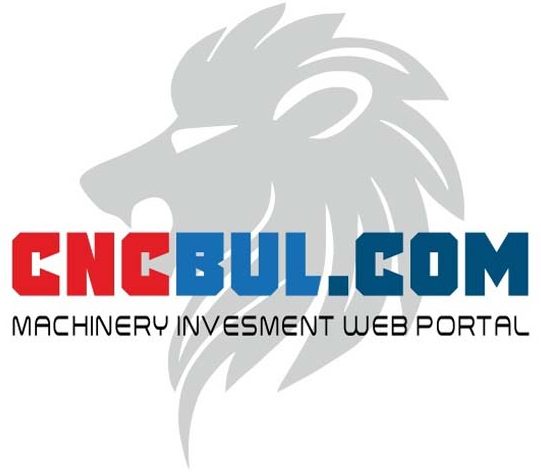What are the criteria that headhunter companies pay attention to when choosing a CEO for CNC machine tools companies?
When headhunter companies look for a CEO for CNC machine tools companies, they consider a wide range of criteria to ensure the candidate is well-suited for the role. This includes a mix of technical expertise, leadership qualities, industry experience, strategic vision, and cultural fit. Here’s a detailed breakdown of these criteria:
1. Technical and Industry Expertise
In-depth Knowledge of CNC Technology
- Understanding of CNC Operations: The CEO should have a thorough understanding of CNC operations, including programming, machining processes, and the latest technological advancements.
- Familiarity with Industry Trends: Knowledge of current and emerging trends in the CNC machine tools industry, such as Industry 4.0, automation, and smart manufacturing.
Engineering Background
- Educational Qualifications: A degree in mechanical engineering, manufacturing engineering, or a related field is often preferred.
- Professional Experience: Significant experience in the CNC machine tools industry, including roles in engineering, product development, or operations.
2. Leadership and Management Skills
Proven Leadership Experience
- Track Record of Success: Demonstrated success in previous leadership roles, ideally within the manufacturing or CNC sectors.
- Change Management: Experience in managing change and driving transformation within an organization, particularly in adopting new technologies and processes.
Strategic Vision
- Long-term Planning: Ability to develop and implement long-term strategic plans that align with the company’s goals and market demands.
- Innovative Thinking: An innovative mindset to drive growth and competitiveness through new product development and market expansion.
Financial Acumen
- Budget Management: Proficiency in managing budgets, financial planning, and resource allocation.
- Profitability Focus: Strong focus on enhancing profitability through cost control, efficiency improvements, and strategic investments.
3. Operational Expertise
Production and Supply Chain Management
- Operational Efficiency: Expertise in optimizing manufacturing processes to improve efficiency, reduce costs, and maintain high quality.
- Supply Chain Management: Knowledge of supply chain management, including procurement, logistics, and vendor relations.
Quality Control
- Standards and Compliance: Understanding of quality control standards, such as ISO certifications, and ensuring compliance with industry regulations.
4. Customer and Market Orientation
Customer Focus
- Customer Relationship Management: Proven ability to build and maintain strong relationships with key customers and stakeholders.
- Market Responsiveness: Ability to respond to market changes and customer needs with agility and flexibility.
Sales and Marketing Skills
- Sales Strategy: Experience in developing and executing effective sales strategies to drive revenue growth.
- Brand Management: Understanding of brand management and the ability to enhance the company’s reputation in the market.
5. Interpersonal and Communication Skills
Strong Communication Skills
- Internal Communication: Ability to communicate effectively with employees at all levels of the organization to foster a collaborative and inclusive work environment.
- External Communication: Proficiency in representing the company to external stakeholders, including customers, investors, and the media.
Team Building
- Talent Development: Commitment to developing and mentoring the leadership team and employees, fostering a culture of continuous improvement.
- Collaboration: Ability to build strong teams and promote a collaborative work culture.
6. Adaptability and Cultural Fit
Cultural Alignment
- Company Values: Alignment with the company’s core values and culture, ensuring a good fit with the existing team and organizational ethos.
- Global Perspective: If the company operates globally, the CEO should have a global mindset and experience in managing international operations.
Adaptability
- Agility: Ability to adapt to changing market conditions, technological advancements, and organizational needs.
- Resilience: Demonstrated resilience in overcoming challenges and leading the company through periods of uncertainty.
7. Innovation and Technology Adoption
Embracing New Technologies
- Tech-Savvy: Understanding and embracing new technologies that can enhance manufacturing efficiency and product quality.
- R&D Focus: Strong focus on research and development to keep the company at the forefront of technological advancements.
Digital Transformation
- Digital Strategy: Experience in leading digital transformation initiatives, such as implementing Industry 4.0 practices, IoT, and data analytics.
- Cybersecurity: Awareness of cybersecurity risks and the implementation of measures to protect the company’s digital assets.
Conclusion
Selecting a CEO for a CNC machine tools company involves a comprehensive evaluation of technical expertise, leadership skills, industry knowledge, and cultural fit. The ideal candidate should be a visionary leader with a deep understanding of CNC technology, capable of driving strategic growth and innovation while maintaining operational excellence. Effective communication, customer focus, financial acumen, and the ability to manage change are also critical for ensuring the company’s success in a competitive and evolving market.

